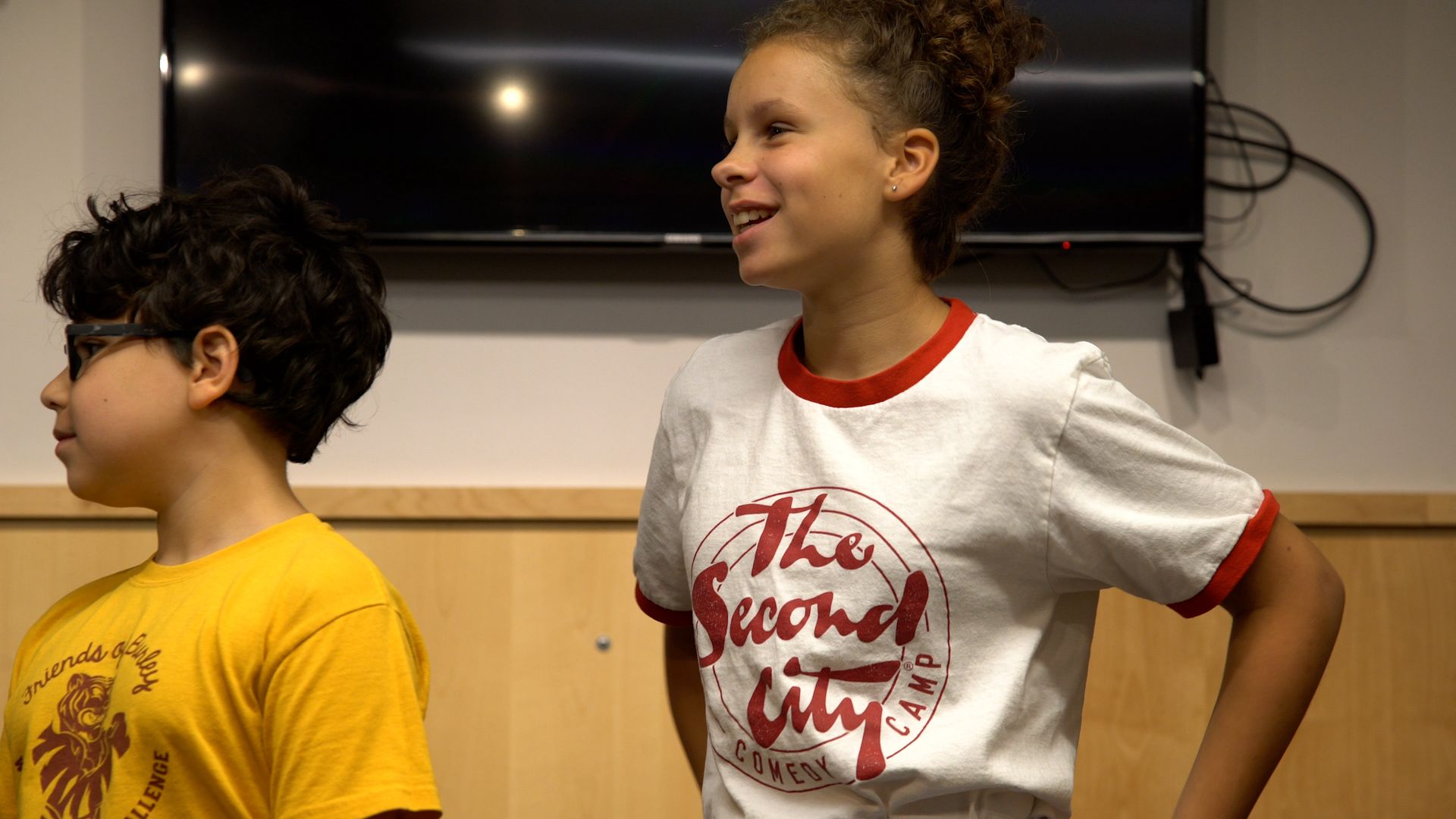Of all the reasons to consider joining the Marine Corps-removing the burden of student loan debt, getting vaccinated against anthrax, traveling to countries no one voluntarily visits-the one benefit you’ve probably never considered is this:
The military can actually help you audition better.
For starters, being in a combat zone is generally stressful and you spend a lot of time questioning whether or not your training has adequately prepared you to react to the unexpected. Sound familiar?
It turns out, veterans have an arsenal of skills that help in cutting through the stress and performing under pressure. Here are three secrets for applying the military’s science of warfare to your auditions.
1. Muscle Memory
If you do anything routinely enough, it becomes as simple as breathing. In Marine boot camp, recruits spend nearly a month walking everywhere holding a rubber rifle. I wouldn’t be exaggerating if I told you my drill instructor suggested that I make love to it. She might be the last lady you ever have. By the time you get to shoot a real weapon, you know exactly where the buttstock should rest on your shoulder and your finger finds the safety without looking.
You, as an improviser, should also know what you’re doing before you put yourself under fire. Muscle memory for actors comes in the form of taking classes and getting as much experience as possible. To get stronger, you need to get on stage. A lot. Familiarize yourself with as many of the improv tools as you can. Create characters you like and practice them consistently. The more you get to know these characters, the easier it becomes to pay attention to everything else happening in the scene.
Tip: Muscle memory can adversely affect you if you have been doing something wrong for so long that it becomes second nature. If you can be honest about your bad habits, find a coach and let their criticisms and suggestions sink in.
2. The Rule of Threes
You might know the Improv Rule of Threes, but the Marine Corps has one that’s great for auditions.
If you are in a situation that makes you extremely nervous, your primitive brain takes over and shuts down other sections to conserve brain power, which can make basic tasks seem nearly impossible to perform.
A simple way to test this is to ride on a plane that is going down and attempt to remember everything from the safety video. Let’s face it; you are going to die. That video was three minutes longer than your attention span and the emergency pamphlet in your seat pocket was as difficult to understand as an Ikea assembly manual.
Thankfully, our military is way ahead of the commercial flight industry. When soldiers in battle were taking three times as long to clear a weapon malfunction as they did in training, the government did extensive research to figure out what could help. It turned out that the instructions for clearing the weapon were just too difficult to remember, so the Marine Corps started teaching a simple three-word, life-saving phrase:
“Tap, Rack, Bang”
Basically, this just means to try these three tasks in this order and you might not die. It worked-- and proved that stress limits how much you can remember. The result was a lot of three word military phrases.
Oddly enough, it works for auditions, too. Have you ever walked into an audition thinking about ALL the things you want to do right, and when your moment comes, you can’t remember any of it?
Next time, try limiting it to just a few things you know you have trouble with and leave the rest to your muscle memory. (Look, these are building on each other!)
One of my former teachers, Jeff Griggs, once told me three things to remember in an improv audition, and I turned them into my own personal three word scene-saving phrase:
“Confident, Objects, Agree”
No, confident objects don’t always agree. Although, confidence not only proves you know what you’re doing, but it also shows a strong stage presence. Object work shows you know how to create a believable reality. (Besides, the casting director is sick of watching people stand still and talk at each other.) Finally, agreeing is as simple as accepting everything your scene partner lays down. It can also help you avoid an argument scene, which only showcases your ability to be disagreeable.
3. Helping Others Should Come Naturally
In our industry, many performers don’t see any benefit to making their “competition” shine. However, just like the military, improv is a team sport. “Army of One" was a short-lived recruiting slogan for a reason:
It is stupid and makes no sense.
When you have a scene with a less experienced improviser, support them 100% with gifts and being emotionally committed. Being able to support your scene partner is a serious skill, and you should show it off. When it’s over, the casting director knows exactly who was responsible for the success of the scene.
If this advice has been helpful, you can get a lot more by signing up at your local recruiter’s office. Amazingly, training is free... and they even provide transportation to all your gigs.
Jonah Saesan served 10 years in the United States Marine Corps earning the rank of Staff Sergeant. After his military service was complete, he completed Writing and Conversatory programs at The Second City Training Center, where he is now a faculty member and helped develop the Improv for Veterans program, specifically designed for veterans in Chicago and LA. Follow him on Twitter @jonahsaesan.

 Shows & Tickets
Shows & Tickets  Chicago Venue Info
Chicago Venue Info  Classes & Education
Classes & Education  Second City Works
Second City Works  Second City Network
Second City Network  Our Legacy
Our Legacy 













